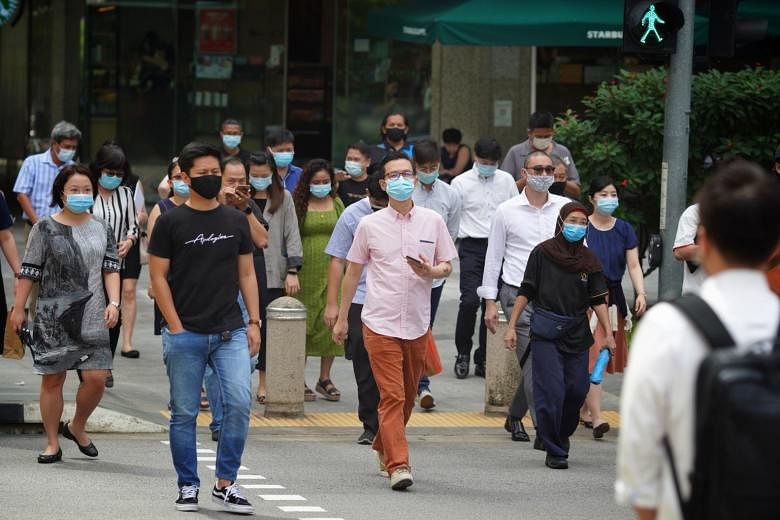SINGAPORE - Tougher measures are needed to strengthen the Singaporean core of the workforce, such as anti-discrimination legislation, said labour MP Patrick Tay (Pioneer).
Mr Tay, who is also assistant secretary-general of the National Trades Union Congress (NTUC), added on Wednesday (Feb 24) that there remains a ground concern that reliance on foreign talent has led to an unnecessary increase in competition in the job market.
"To safeguard the Singaporean core and curb discriminatory hiring, we must ensure that Singaporean professionals, managers and executives (PMEs) have access to a level-playing field for jobs while balancing companies' manpower needs in the immediate and longer term," he said during the Budget debate.
To this end, he suggested formal legislation to deter cases of discrimination, whether by nationality, age, gender, disability or race.
"Perhaps, it is time for us to seriously deep dive and consider, beyond mere tripartite advisories, guidelines and standards, to promulgate anti-discrimination legislation to give a stronger set of teeth to existing institutions like the Tripartite Alliance for Fair and Progressive Employment Practices (Tafep)," he said.
Such legislation will send a stronger signal than the current tripartite standards and guidelines, he said. It can also serve as clear deterrence to firms, give Tafep wider powers, and eradicate all forms of discrimination at workplaces by employers or agencies.
Mr Tay noted that some PMETs viewed the increase in qualifying salary for foreign talent as raising their minimum wages, alongside other concerns that employers might not give commensurate pay hikes to Singaporeans employees who perform similar jobs.
He added that he has also heard of employers who "downgraded" employment pass holders to S Pass holders to comply with the policy changes, although these workers were performing the same job function.
S Pass holders must earn a fixed monthly salary of at least $2,500 and are typically degree or diploma holders, such as technicians.
Mr Tay said: "We therefore need to look at ways to further strengthen the S Pass criteria and conditions to prevent such a back-door approach.
"This also means we need continued stricter enforcement against errant companies with a weakening Singaporean core."
This is especially so for firms who are persistently "triple weak", said Mr Tay. This refers to companies with a highly disproportionate number of foreign PMEs, who have weak commitment to strengthening their Singaporean core, and weak relevance to Singapore's economy and society.
Other suggestions he made include publishing a watchlist of such companies as a deterrent, or imposing mandatory audits and penalties on firms with discriminatory hiring practices.
He acknowledged that employers might bring in foreign talent to fill skills gaps in the current workforce, but added that they then must also have clear plans to build a pipeline of locals to eventually fill roles at all levels of their hierarchy.
"It is imperative that we monitor and ensure concerted, structured, and institutionalised skills and knowledge transfer from these foreign PMEs to our local PMEs within a stipulated and agreed time frame," he said.
Nominated MP Abdul Samad Abdul Wahab agreed, adding that while Singapore must keep its economy open and have foreign workers augment the local workforce, employers here need to continuously strengthen their Singapore core, at both the sectoral and company level.
"I would like to call on all employers to make the local workforce your employee of choice, and ensure skills transfer to the local workers to moderate reliance on foreign labour," he said.


